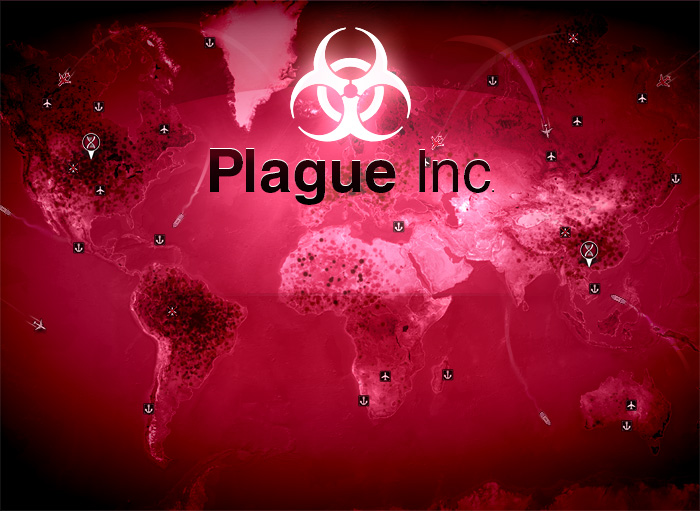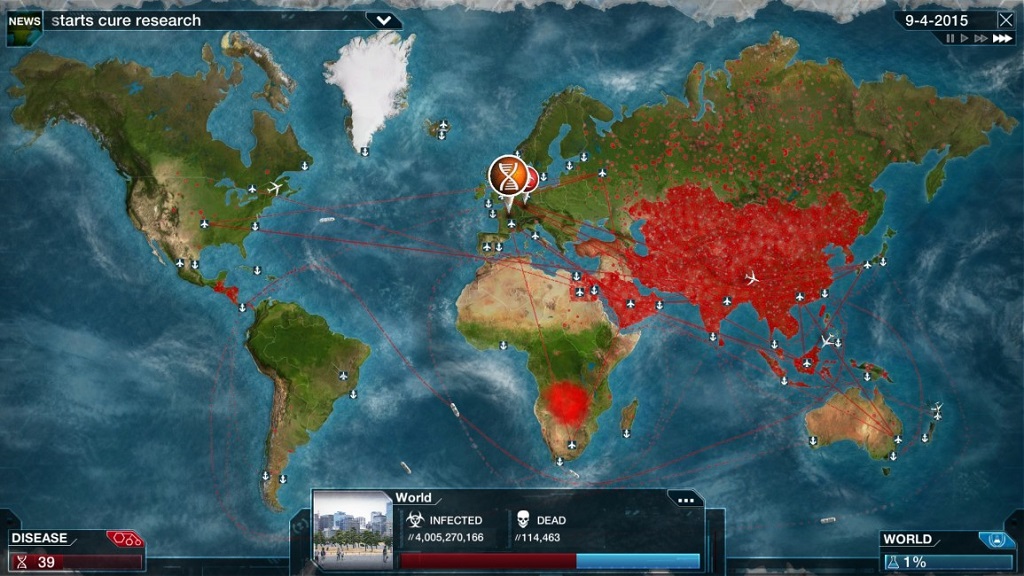
Plague Inc, a strategic simulation game that has captivated mobile gamers worldwide, offers a unique blend of strategy and terrifyingly realistic simulation. Developed by Ndemic Creations, this game has challenged players to create and evolve a pathogen in an effort to annihilate the human population with a deadly pandemic. Since its inception in 2012, Plague Inc has stood out for its innovative gameplay, engaging content, and educational value, making it a hit among strategy enthusiasts and casual gamers alike.
The inception of Plague Inc can be traced back to the creative mind of James Vaughan, the founder of Ndemic Creations. Vaughan, intrigued by the complexity of viral outbreaks and the intricate balance of global ecosystems, aimed to create a game that not only entertains but also educates its players about epidemiology, disease transmission, and pandemic management. Released in May 2012, Plague Inc quickly rose to prominence, becoming one of the most downloaded games in its genre. Its development was marked by meticulous research and a commitment to realism, which is evident in the game’s detailed simulation mechanics and the diverse strategies players must employ to succeed.
At its core, Plague Inc revolves around a simple yet profound objective: to develop a pathogen and evolve it with enough potency to infect and wipe out the human race. Players begin their conquest with a choice of several pathogens, each with unique characteristics and mutation capabilities. The game unfolds as a complex puzzle, with the player navigating through a world brimming with challenges, including countries’ efforts to combat the spread of the disease, develop cures, and adapt to the changing environment.
The narrative depth of Plague Inc is enhanced by its dynamic world. Players must strategize their pathogen’s evolution, taking into account various factors such as climate, population density, and global health infrastructure. The game’s plot thickens with the introduction of new strains and the unforeseen effects of mutations, keeping players on their toes and engaged in a battle of wits against the world’s best defenses.
The immersive experience is further amplified by real-world inspired scenarios, adding layers of realism and relevance. As players progress, they unlock new pathogens and scenarios, each offering a unique challenge and perspective on global health crises. This not only adds to the game’s replay value but also its educational aspect, providing insights into the complexities of pandemic management and disease prevention.
Plague Inc’s game mechanics are a blend of strategy, simulation, and real-time decision-making. Players must navigate through five key aspects to ensure their pathogen’s success:
Choosing the right pathogen and strategically evolving it is crucial. Players must balance between transmission, symptoms, and abilities to maximize infectivity and lethality while avoiding early detection.
Players must adapt their strategy based on the world’s response. Monitoring outbreaks, leveraging air and sea travel, and anticipating global research efforts are essential to outmaneuver efforts to develop a cure.
The game challenges players to respond to dynamic world events and disease control measures. Flexibility in strategy and the ability to predict future challenges are key to dominating the globe.
As the disease spreads, the global community will invest in research for a cure. Players must evolve their pathogen to resist cure efforts, making timing and mutation choices critical to success.
With a variety of scenarios and pathogens available, each playthrough offers a new challenge. From bacteria to bio-weapons, players must master different strategies to achieve victory.

Mastering Plague Inc requires a balance of aggression and stealth. Starting in a country with a high population but weak healthcare can give your pathogen the edge it needs. Simultaneously, investing in transmission traits that allow for silent spread can keep your disease under the radar, making it harder for countries to start working on a cure early.
Another vital strategy is to monitor the global situation closely. Adjusting your pathogen’s traits to overcome new challenges, such as climate changes or increased healthcare responses, can be the difference between eradication and extinction. Being adaptable and responsive to the changing game environment will ensure your pathogen’s success.
While Plague Inc offers an engaging and educational experience, it is not without its drawbacks. Some players have critiqued the game for its steep learning curve, which can be daunting for newcomers. The complexity of the game mechanics and the need for strategic planning from the outset can overwhelm those unfamiliar with simulation strategy games.
Additionally, the game has faced criticism for its representation of sensitive topics, especially in light of real-world events. Some argue that the game trivializes the impact of pandemics, potentially leading to insensitivity towards actual global health crises. Despite these concerns, Plague Inc remains a popular and thought-provoking game, offering valuable lessons in strategy, global health, and crisis management.
The reception of Plague Inc has been largely positive, with players praising its depth, realism, and educational value. The game’s unique premise and engaging gameplay have attracted a diverse audience, from strategy enthusiasts to those interested in science and epidemiology. Its success has sparked discussions about the role of games in education and the potential for games to raise awareness about global health issues.
However, the game has also sparked debate over its ethical implications, especially in the context of real-world pandemics. Some players have expressed discomfort with the game’s premise, highlighting the importance of sensitivity in game development. Despite this, the majority view Plague Inc as a valuable tool for understanding the complexities of pandemic spread and management, reflecting a broader appreciation for the educational potential of gaming.
In conclusion, Plague Inc’s impact on mobile gaming and its contribution to public understanding of epidemiology cannot be understated. Its blend of strategy, simulation, and educational content has set a new standard for mobile games, proving that games can be both entertaining and informative. As Plague Inc continues to evolve, it remains a testament to the power of gaming as a medium for education and engagement.